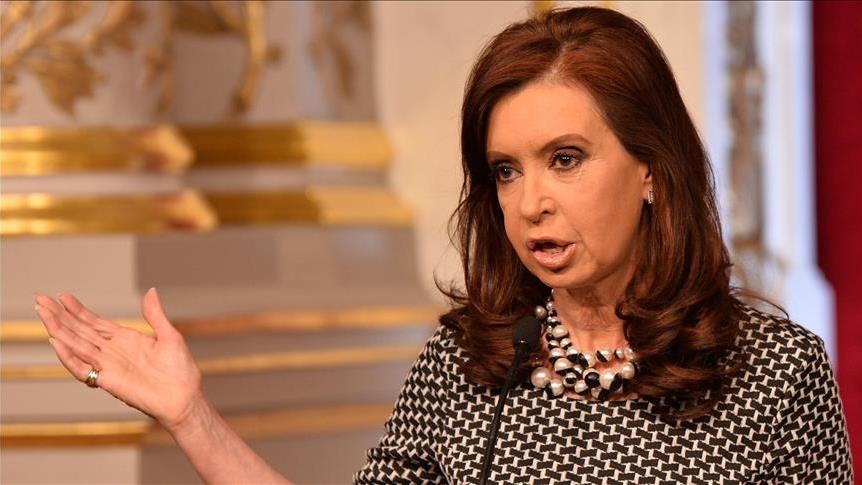LONDON
Argentine Vice President Cristina Fernandez de Kirchner gave testimony for 50 minutes Friday at her apartment in Buenos Aires after an assassination attempt was made on her life.
Authorities are trying to determine if a sole suspect acted alone after they arrested a man for pointing a gun at Kirchner late Thursday.
A 35-year-old Brazilian national remains the only person charged with attempted murder as investigators continue to reconstruct the path taken by the suspect until he was able to get near to where the vice president was standing.
Judge María Eugenia Capuchetti and prosecutor Carlos Rivolo collected testimony from those at the scene.
Investigators raided Fernando Andre Sabag Montiel’s apartment and found 100 9mm caliber projectiles.
Media reports said Sabag was arrested in March inside a car for not having a license plate and police found a 35-centimeter (14-inch) long blade.
The Ambito news outlet said Sabag holds Argentine identification and allegedly has links to Nazi organizations operating in Argentina, has a tattoo on his left elbow and wears a black sun or a Schwarze Sonne — a symbol widely tied to nazi mysticism.
Thousands gathered Friday at the “Defence of democracy” rally organized by political, union and social organizations to condemn the assassination attempt on the vice president.
Kirchner received support from international and national figures, including the UN High Commissioner for Human Rights and Pope Francis.
Regional leaders also offered support including Bolivian President Luis Arte, Chile’s President Gabriel Boric, Nicolas Maduro from Venezuela and former Brazilian President Luiz Inacia Lula da Silva.
Argentines from across the political divide were quick to offer support and condemn the attack, notably former President Mauricio Macri and Buenos Aires Mayor Horacio Rodriguez Larret.
“Social peace has been disturbed” after Sabag was found to have a gun with five bullets, although none had left the gun, reportedly due to a malfunction, said President Alberto Fernandez.
Kirchner is a divisive figure in Argentina’s political landscape — adored by supporters and loathed by detractors.
Argentine prosecutors Aug. 23 asked for a 12-year prison sentence for de Kirchner on corruption charges after she was accused of awarding fraudulent and overpriced public works contracts in the southern province of Santa Cruz during her two terms as president from 2007-2015.
Many of the contracts allegedly benefitted close allies of the Kirchner family, with some convicted of corruption.
Prosecutors also called for “special life disqualification” from public office for Kirchner, who has political immunity as vice president and president of the Senate.
Kirchner vehemently denies the accusations and has criticized the country’s judiciary.
In late August, police clashed with Kirchner’s supporters at a demonstration outside her house.

